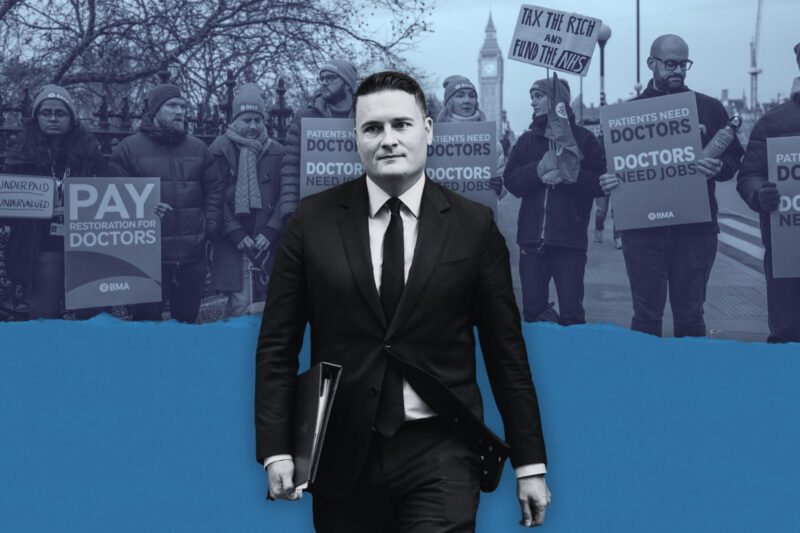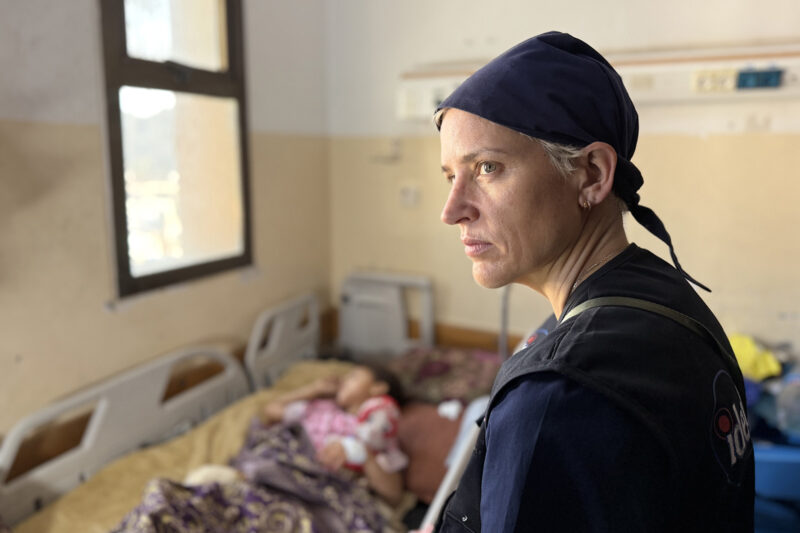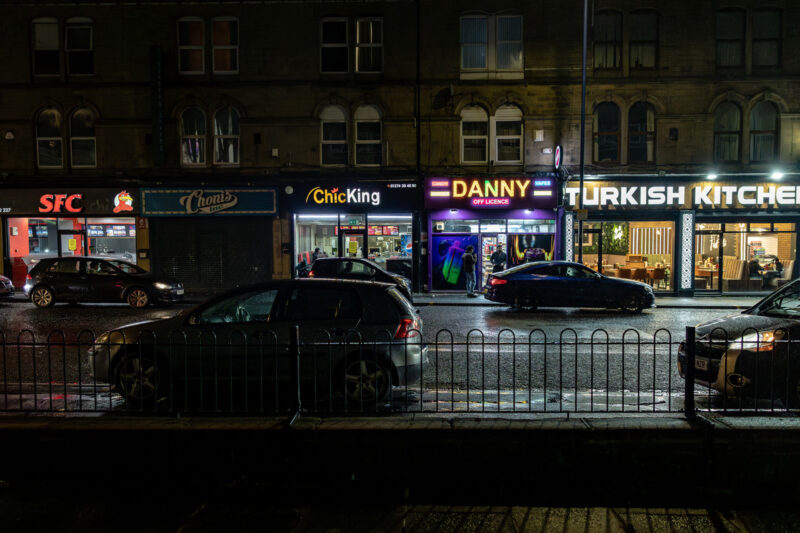Streeting’s NHS reforms could leave Black and Asian people behind again, researchers warn
Key 133-page report on state of NHS contained just three paragraphs on ethnic disparities that see minority groups dying younger and waiting longer for treatment

Wes Streeting’s promised reform of the health service could once again leave Black and Asian people out in the cold, health equity researchers fear.
It comes after the publication of a damning report on the state of the NHS, commissioned by the health secretary days after he took office to give a “raw and honest assessment” of issues facing the health service. During the election campaign, Streeting pledged wide-ranging “reform and modernisation” of the NHS.
But the 133-page report by crossbench peer Ara Darzi, published last week, contained just three paragraphs on the “widespread disparities” in healthcare that see Black and Asian people on average dying younger and waiting longer for treatment than white people.
“The review could, and perhaps should, have gone further,” said Dr Habib Naqvi, director of the NHS Race & Health Observatory. The independent expert body, established by the NHS to identify and tackle race and ethnic health inequalities, contributed evidence to the report. “It is encouraging that a review has noted ethnic inequalities in health, but it could have shone a light on the unwarranted variation in terms of access, experience and outcomes.”
He added that Black women were up to four times more likely than white women to die during pregnancy, childbirth or soon after, while: “Asian women are two times more likely to die. We see inequalities across a range of conditions, including in access to mental health services, in sickle cell disease, and representation in research.”
Darzi’s focus on disparities between different ethnic groups was limited to mental health treatments and median age at death, which was significantly lower for Black, Asian and mixed-race people than those from white backgrounds. No mention was made of the disproportionate impact of Covid-19 on ethnic minorities, for instance, even though the pandemic’s effects on the health service were discussed at length, nor of the widespread evidence of racism within the NHS towards both patients and staff.
“Covid-19 has been the latest reminder to us all of the stark inequalities in health for Black, Asian and ethnic minority people,” Naqvi said. “Minority ethnic people were more likely to contract the virus as they were more likely to be frontline workers, but we want to know why. Why are minority ethnic people more likely to work on the front line and less likely to be in the boardroom making decisions? Why are they less likely to have access to green spaces? Why do we have an ethnicity pay gap across occupations?”
Timi Okuwa, chief executive of the Black Equity Organisation, said the report offered “valuable insights into the structural issues facing the NHS” but didn’t go far enough on the issue of race.
“The ethnic disparities that disproportionately impact Black and ethnic minority patients and staff need to be addressed more directly given the scale of disparities,” she told Hyphen. “There is insufficient focus on the deep-seated inequalities that undermine both access to care and career progression within the NHS, which is the biggest employer of Black people and ethnic minorities. The government must take decisive action, beyond what’s outlined in the report, to address these longstanding issues.”
Speaking at a conference held by the Institute for Public Policy Research on Wednesday, Streeting said Darzi’s report “forces” him to “take on both left and rightwing orthodoxies”. He accused the health service of “complacency” and “waste” while in opposition last year, and prime minister Keir Starmer said he would seek to “ramp up” weekend work. The doctors’ union, the British Medical Association, said Streeting needed a “dose of reality” and would have to stump up the cash for both staff and infrastructure if he wanted this to happen.
Since entering office in July, Streeting has said his reforms will focus on digitisation, prevention rather than treatment, and moving care out of hospitals. His insistence that the private sector should continue to play a role in the NHS, however, has attracted criticism.
Anna Gkiouleka, associate director for research at Queen Mary University’s Health Equity Evidence Centre, said disparities in healthcare were rooted in poverty and economic inequality. “People’s health is not poor because the healthcare services are bad,” she said. “Their health suffers due to their living conditions. Often, people come into the hospital and receive very sophisticated treatment but they go back to their homes and they become sick again because of the way they live.
“We know that austerity measures negatively impact health. We have research showing that austerity impacts mortality rates and health outcomes. We need a policy which addresses this.”
While Darzi’s report does discuss poverty and poor housing, it does not acknowledge that these problems disproportionately affect people from ethnic minority backgrounds. “In certain ethnic groups, you will be in a socially deprived area, you won’t have access to healthy food, and there won’t be any access to resources to be able to advocate for your own health,” said Dr Shehla Imtiaz-Umer, a GP and the co-editor of a book on diversity in healthcare. “There’ll be a lack of education. All of this combined means that you’re more likely to become unwell and be affected by long-term conditions. And those chronic health conditions mean that, by not having access to resources, you will become more unwell.”
But both she and Naqvi agree that Streeting’s reform agenda could offer a chance to resolve some of the real issues facing the health service — if it addresses racial disparities. “Tackling racial inequalities will lead to a more efficient health service, a more engaged workforce and better outcomes for all patients,” said Naqvi. “The NHS cannot afford the cost to patient lives and staff wellbeing that come from the inequalities that we see. For the government, focusing on this agenda is low-hanging fruit.”
A spokesperson for the Department of Health and Social Care said the government was “committed to addressing health inequalities and ensuring all communities have equal access to healthcare”. They added: “We will work across government to tackle the challenges that underpin disparities in health, shifting the focus from sickness to prevention.”
 Newsletter
Newsletter













